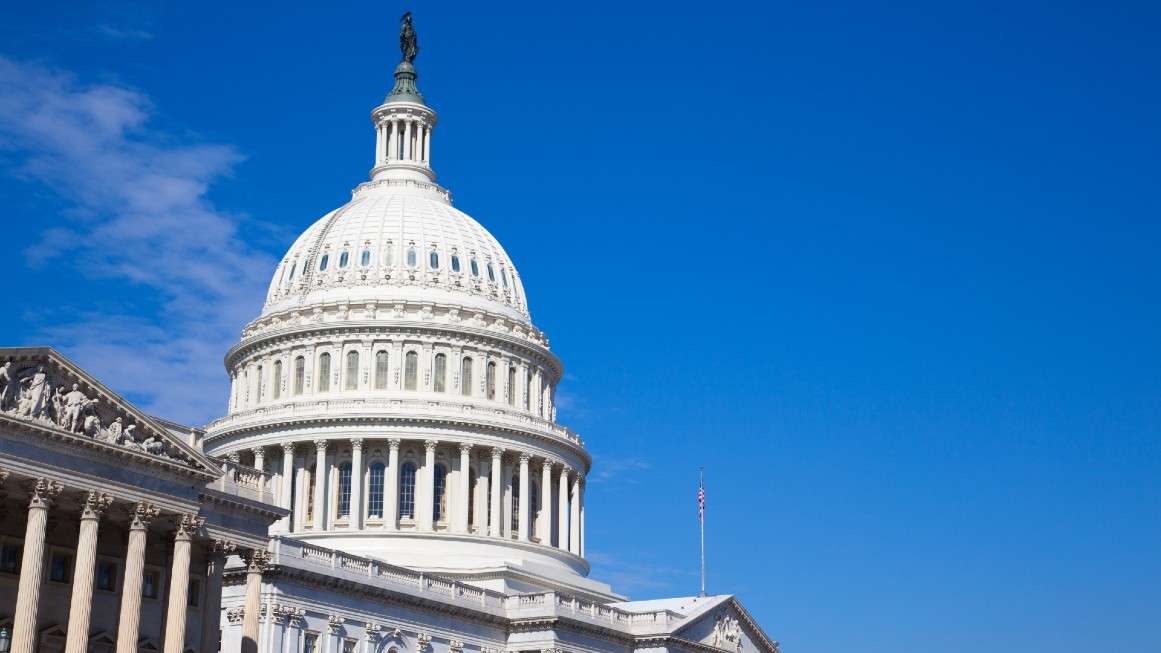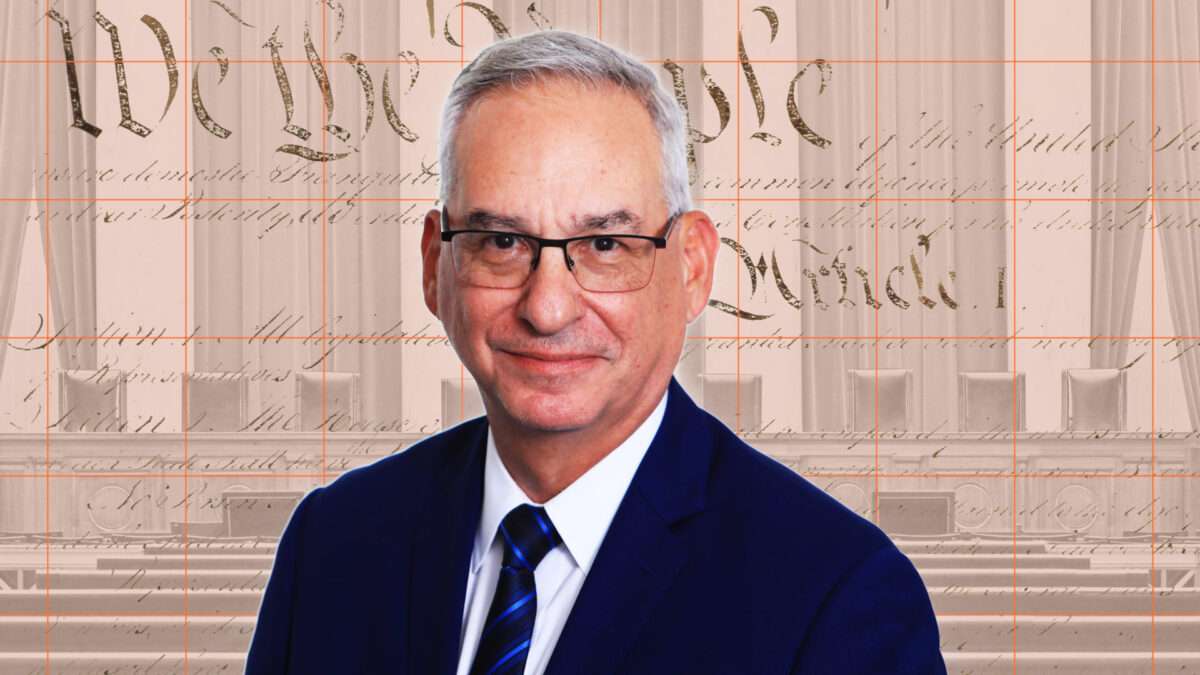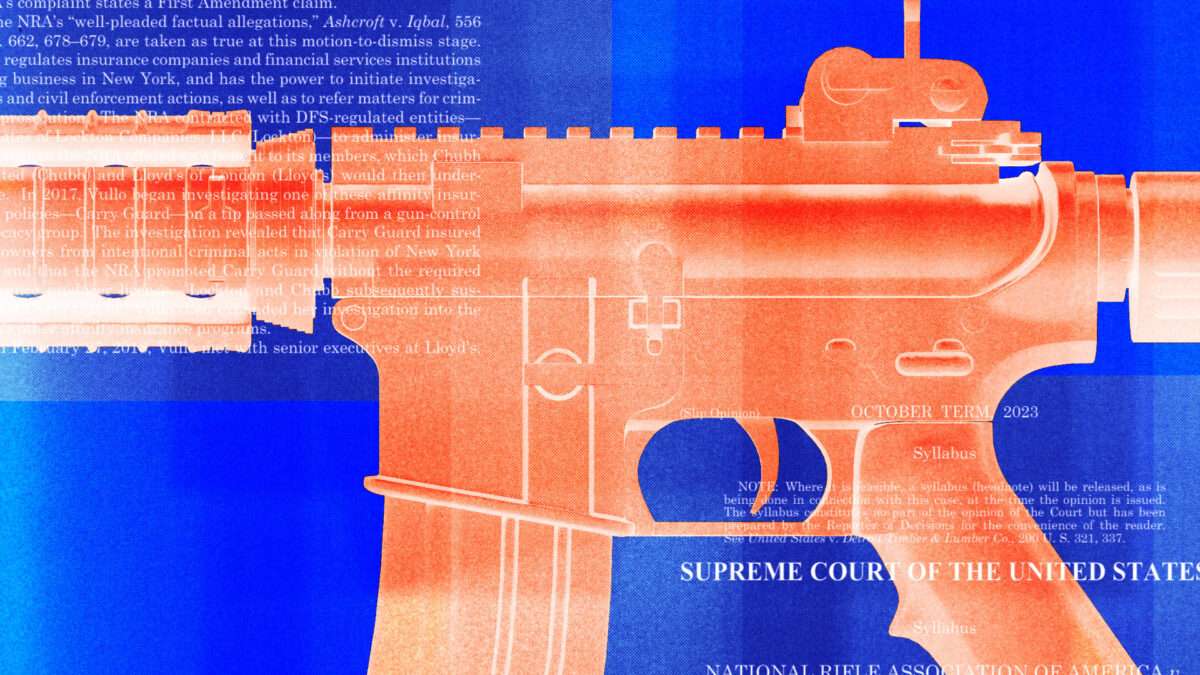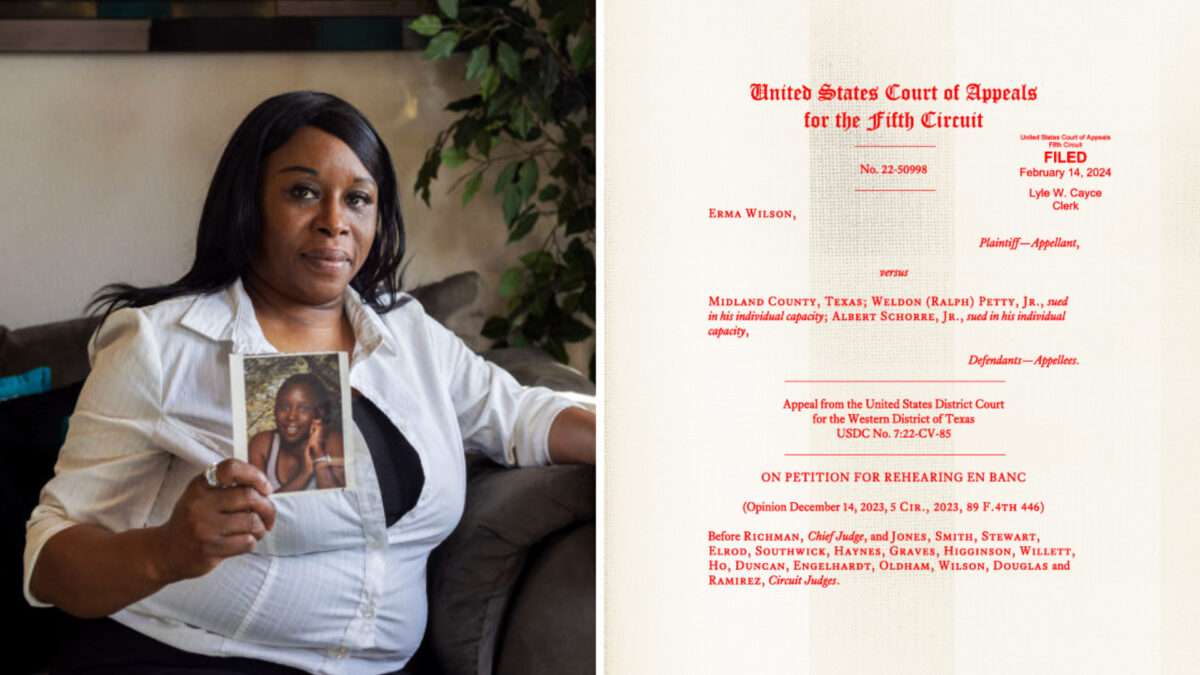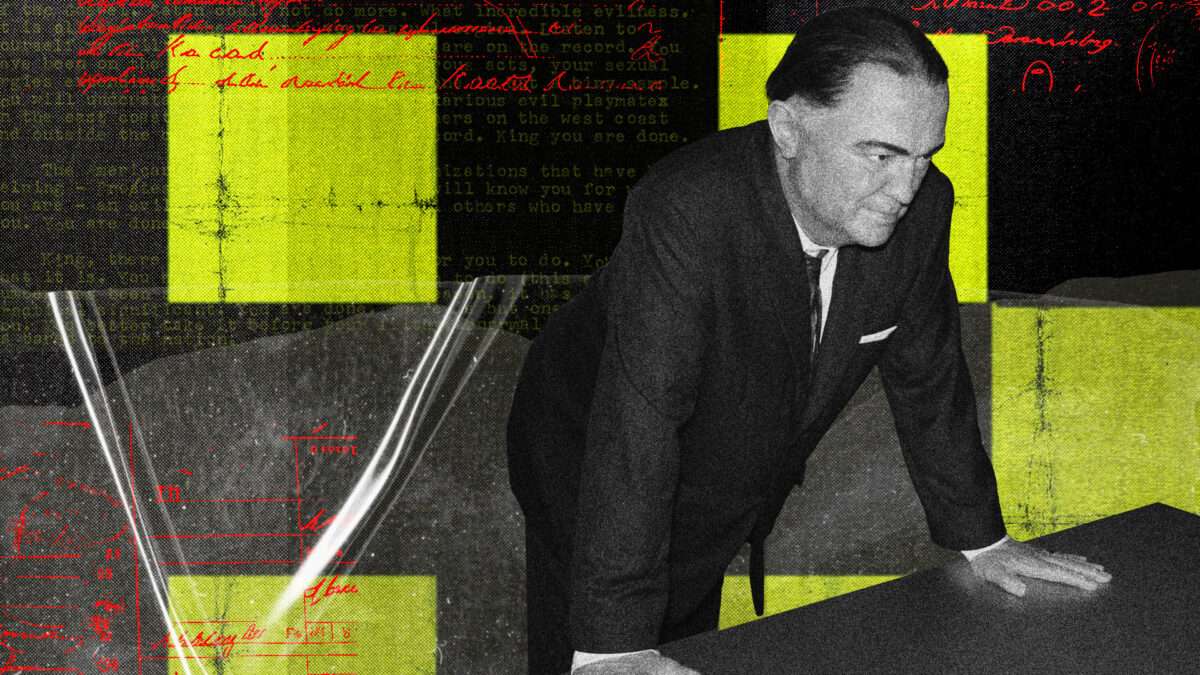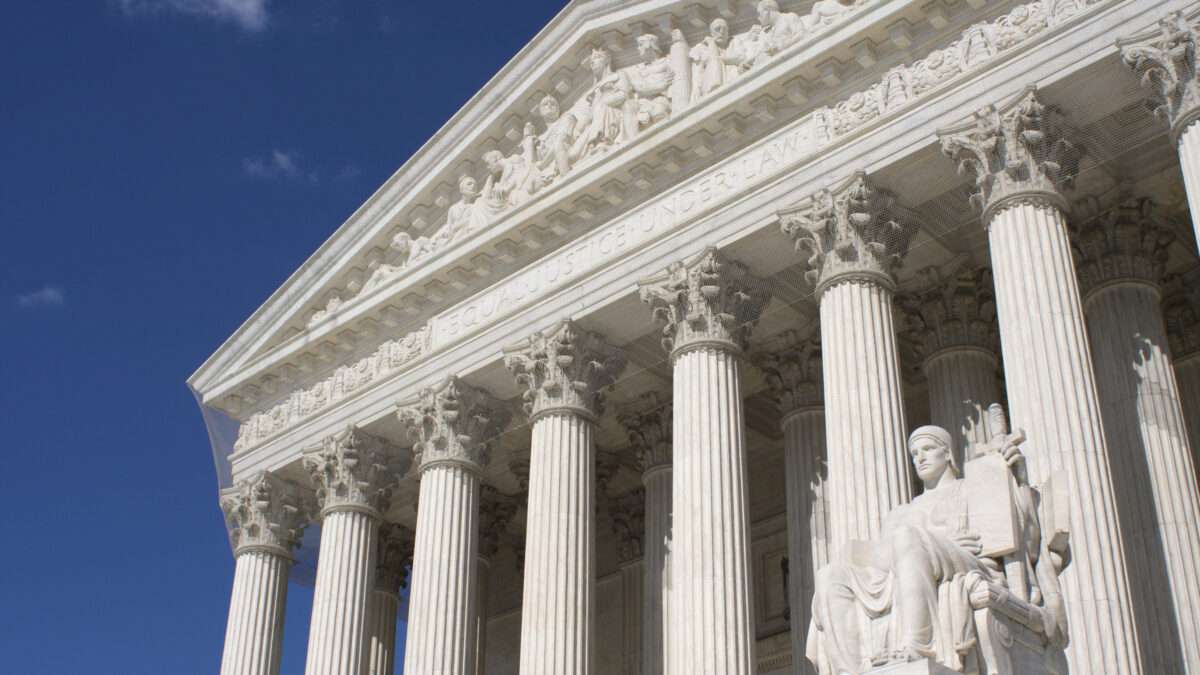When Attacks on Anarchists Accidentally Improved Free Speech Law

American Anarchy: The Epic Struggle between Immigrant Radicals and the US Government at the Dawn of the Twentieth Century, by Michael Willrich, Basic Books, 480 pages, $35
The lawmaking and policing powers of late 19th and early 20th century America did not think anarchist agitators deserved the protective penumbra of our Constitution. After Emma Goldman immigrated to the United States in 1885 from czarist Russia, she became a dynamic and hugely popular traveling lecturer on anarchism and other rebellious causes, such as draft resistance and contraception. Consequently, she was arrested a lot—and in 1919, along with hundreds of other accused anarchists, she was deported to what was now Bolshevik Russia. (Goldman's version of anarchism was not the free market kind; she wanted to eliminate private property as well as the state.)
Many anarchists saw a bright side to these legal fights: an opportunity to preach their beliefs in a courtroom setting, where the press often amplified their message. The anarchists sentenced to death in the notorious 1886 Chicago Haymarket bombing case spent three days in court laying out their beliefs; in one of their own trials, Goldman and her sometime consort and lifelong comrade, Alexander Berkman, settled for five hours of speaking their anarchist minds.
Berkman did more than lecture against the state and capitalism; in 1892 he decided to try to kill a murderously strikebreaking Carnegie Steel factory manager, Henry Frick. (While he shot and stabbed Frick, he failed to kill him.) This did not help public opinion of their cause. Neither did the fact that Leon Czolgosz, the 1901 assassin of President William McKinley, was a self-proclaimed anarchist who claimed that Goldman's rhetoric had "set me on fire."
In American Anarchy, the Brandeis historian Michael Willrich argues that those legal battles surrounding anarchism in America forged two distinct and opposing elements of modern American policing and law.
On one hand, the anarchists' enemies, from New York City cops to military intelligence to the departments of Labor and Justice, built a wider and more intrusive system of political surveillance and repression to quell and expel the anarchists. These systems' techniques—often relying on frequently unreliable, nativist, and paranoid citizen snoops and snitches—might seem quaint in the post–Edward Snowden age. They also seem especially brutal, given the cops of that era's habit of giving "the third degree" (that is, terrible beatings) to seditious radicals, and to people the officers merely assumed were seditious radicals. Many prosecutions hinged on the accuracy, or not, of some cop's written notes on what a suspect had allegedly said in public.
This repressive apparatus, Willrich writes, was "cobbled…together by putting public power in the hands of private civilian operatives, harnessing local police to national purposes, and drawing upon surveillance technologies developed both in the U.S.-ruled Philippines and in the internal immigrant 'colonies' of New York." The result was "an inefficient and stunningly violent operation that foiled few actual plots, put thousands of people on trial for speaking out against capitalism or the war….and showed an almost total disregard for…constitutional liberties."
And that planted the seeds of these battles' second great effect: Ironically, they ultimately made First Amendment doctrine more respectful of free expression. After the crackdown on the anarchists died down, and past the Cold War repressions under the Smith Act, it became more difficult to imagine anyone could go to jail in America solely for saying or writing a political heresy. Even when people are targeted for their speech, propriety requires that a more substantial charge be added. (The modern inheritor of the mantle of "enemy for whom constitutional protections can be ignored" is the drug seller and user, though different amendments are implicated.)
Three prosecutions during the World War I–era crackdown on political dissidents under the Espionage Act ended up before the Supreme Court. Free expression lost every time. But in Abrams v. United States, based on a 1918 expansion of the Espionage Act known as the Sedition Act, a dissent signed by two justices established an attitude toward the First Amendment's reach that became standard over the course of the 20th century.
In August 1918, the Army Corps of Intelligence Police had arrested a group of Russian immigrants in New York for distributing allegedly seditious pamphlets. The defendants insisted that the literature—many copies of which were tossed out windows for passersby on the street—was not meant to impede the ongoing U.S. war efforts against Germany, that being the basis for many of the charges. The literature was rather opposed to U.S. interference in revolutionary Russia, with whom we were not at constitutionally declared war.
The Abrams defendants were represented by Goldman's lawyer, Harry Weinberger. His role in Willrich's narrative is as central as hers and Berkman's. (Willrich argues that the war on anarchists essentially created the modern figure of the civil liberties lawyer.) The Supreme Court upheld the convictions, 7–2. But a dissent authored by Justice Oliver Wendell Holmes (who had written the earlier, bad decisions in the Espionage Act cases) laid out a First Amendment vision that more strictly limits when government could constitutionally punish expression: only if said expression represents a "present danger of immediate evil or an intent to bring it about."
After reading the dissent, a future founder of the American Civil Liberties Union wrote to Weinberger that "we are going to put it to some use all right." Civil libertarians in and out of the judiciary have been doing so ever since, in ways that have expanded Americans' expressive rights.
***
Things got predictably worse for civil liberties and for anarchists as the war went on. The 1918 Immigration Act, as Willrich sums it up, "authorized the secretary of labor to deport any person identified as a noncitizen and an anarchist." Even your individual beliefs could be elided, since "being a member of an organization that advocated 'anarchistic' ideas was now sufficient cause for deportation." Having built your life here productively for decades and having a family was not enough to save you from being grabbed and shipped out, if a government official thought you didn't believe the state should exist. (In 1903, during the post-Czolgosz wave of anti-anarchist action, Congress passed an immigration law that barred entry to anarchists, though it was difficult to enforce and in its first seven years caught a mere 10 anarchists among millions of immigrants entering.)
The story of the anarchist crackdown is, for good reasons, often used as a crackerjack historical example of the anti-liberty madness that even the supposed land of the free can descend to. This wave of anarchist repression was indeed destructive to many people and organizations—the Industrial Workers of the World, for example, were nearly annihilated by mass raids and arrests.
But the aftermath of these authoritarian spasms suggests we should give at least half a cheer for the Constitution. The rights it lays out were sorely dishonored, but at least they could be called upon eventually.
After World War I ended, President Woodrow Wilson commuted sentences for more than 125 Espionage Act prisoners. One assistant secretary of labor—Louis Post, who actually respected the Constitution—canceled 1,140 deportation orders, nearly three-quarters of the cases he was able to review when briefly in command of the process. The notorious 1919 and 1920 Palmer Raids sent 500 accused radicals to Ellis Island for deportation, but as public opinion and the grinding of the courts turned against the mania, only 23 of them were actually deported. And in 1933, President Franklin Roosevelt gave a general amnesty to the remaining World War I–era political prisoners.
Contrast that with Russia, where many of the anarchists were deported. The Bolshevik state murdered many of them, including two of the Abrams defendants.
Willrich's richly detailed study is especially relevant today, as that expansive sense of First Amendment rights that Willrich traces back to Holmes' Abrams dissent is under fresh fire from legal academics who see the amendment as a barrier to progressive change, from young Americans who think certain possibly hurtful things ought not be legally spoken, and from a culture that in general seems increasingly and angrily eager to shut opponents up. This valuable book shows one big reason why an expansive reading of the First Amendment is important: Without it, human beings have been beaten by cops and exiled from their home, just for saying or writing things the authorities don't like.
Goldman, for one, thought America was better than that. She once told a huge crowd in New York City that when people like her denounced war and conscription, they did this not because "we are foreigners and don't care." They had come here "looking to America as the promised land," and they grappled with the country's errors "precisely because we love America."
The post When Attacks on Anarchists Accidentally Improved Free Speech Law appeared first on Reason.com.



